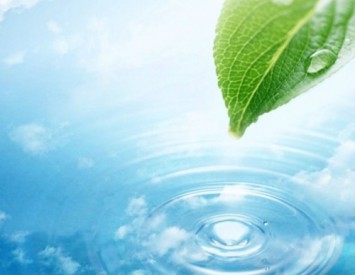It is no secret to anyone that in our time most of the diseases that people suffer is associated precisely with the use of poor -quality and unpeeled drinking water. After all, more than 85 % of all metabolic processes of the body are carried out in the aquatic environment. And in order to ensure the compliance of tap water to the established world standards, various cleansing systems are used.
Content
To date, there is a huge selection of coal filters for water purification that use a variety of principles of work. According to the cleaning method, mechanical, ion-exchange, reverse osmosis, biological, physicochemical and electrical filters are distinguished. Each of them has its own advantages and disadvantages.
The main advantages of coal filters
Consider carbon filters for water, which is based on lightening, that is, such a cleaning method, the essence of which in mechanical purification of water from different impurities that limit the possibility of using it for drinking or other purposes.
Water carbon filter used for removal :
- free chlorine;
- unpleasant taste;
- unnatural water color;
- various organic substances located in water up to the smallest suspended particles and even viruses;
- unpleasant odor.
The basic principle of the operation of coal filters is absorption - the absorption of pollutants molecules with solid material (sorbent). Activated carbon is used as a filtering environment. It is made from the shell of coconuts or specially processed stones, and thanks to this it has high resistance to abrasion.
The advantages of coal filters include:
- low expenses for their operation;
- long service life;
- a wide range of temperatures of the purified water;
- do not require reagent flushing;
- the material from which the filter is made has a lightweight and this reduces the water consumption in drainage.
Varieties of coal filters, their characteristic
Among the huge assortment of modern coal filters, it is very difficult to choose what is really suitable for obtaining high -quality and purified water. Consider the features of various types of filters:
1. The simplest and perhaps the most common is considered to be a filter-worship. Its main advantages are:
- ease of use;
- high mobility.
This filter does not need to be connected to the water supply, but just pour water and wait 5-10 minutes so that it passes to clean. It is convenient for the office to make tea or coffee, and it is also easy to take with you, for example, to the forest or at sea. This filter has a cartridge, which quite effectively cleans water of most microorganisms.
The disadvantages of this filter include:
- slow water purification;
- small resource of the cartridge, 150-250 l;
- with prolonged use of the filter, bacteria begin to multiply on its surface, so the cartridge needs to be changed at least once a month.
2. Another type of coal filter is the filter nozzle, it is located directly on the tap and cleanses the water flowing through it. This is the smallest and compact filter, very convenient to use. The advantages include:
- simplicity in mounting;
- the speed of water purification, but the quality suffers;
- it is economical, as it allows you to get tasty and healthy water at a low price.
The main disadvantage is:
- fast wear of the filter element. It is just like a fuel filter is designed for small amounts of water and therefore is not suitable for constant use.
3. Stationary filters are the most expensive. They are quite productive, have from 3 to 7 degrees of cleaning, do not need care and are extremely economical in terms of replacing consumables. On the other hand, the water is distilled. It does not have salt and trace elements that are useful for humans. Accordingly, the installation of this type of filters is very controversial.
Features of industrial filters
On the same time with domestic, there are industrial carbon filters for water. Designed for cleaning from smells, flavors, chlorine, etc.
Areas of the use of industrial filters:
- hotels, cottages;
- restaurants and cafes;
- equipment for water lingering;
- purification of fresh and sea water;
- water purification in metallurgical plants;
- water cleaning at thermal power plants of the TPP;
- cleaning of river water;
- purification of water in pulp and paper industry;
- water purification in metallurgy and other industries.
Advantages and advantages of these filters:
- high performance;
- various degrees of filtering;
- economical energy consumption;
- simplicity in operation.
Loading carbon filters can operate in Duplex, triplex, kuadplex systems, that is, two, three or even four filters work in parallel.

Industrial filters use the activated carbon of the best world manufacturers, which has a unique ability to remove the smallest microorganisms, large organic molecules, such as humic acids, oil products and chlorological compounds. This ability distinguishes industrial filters from non -industrial, which is based on the use of activated coal on the basis of coconut shell.
Since the production requires the purification of water from organic substances, industrial filters fully cope with the task, due to the fact that they are filled with activated coal -based coal -based coal.
A wide assortment of the presented treatment systems allows you to filter water with a volume of 0.5 to 100 m 3 per hour. All carbon industrial filters are equipped with special valves that allow you to perform almost any functions.
What is the cooked filter to choose
1. The market has many different coal filters for water purification. Let's start with a filter-puppet. The most popular trading marks are:
- Aquaphor, Russia;
- Barrier, Russia;
- Geyser, Russia;
- Our water, Ukraine;
- Britta, Germany.
When choosing a filter of this type, an important factor is the material from which it is made, it should be high -quality plastic, which prevents the reproduction of various microorganisms on the surface and is easy to operate and clean.
The volume of such filters is also important, it ranges from two to six to seven liters. The color scheme is the most diverse, they can be: blue, red, yellow, pink, gray, silver and other colors.
The type of resource indicator is mechanical and electronic. The price depends on the volume, the company, such as the indicator. On average, such filters cost from 8 to $ 50. Replaceable cartridges have a total cost of $ 8 to $ 8. The cartridge must be changed once a month. In principle, the quality of jugs-filters in all brands are equally high.
2. The filter nozzle differs from the jug in the fact that it cleanses the running water, which flows directly from under the crane. At the same time, they are the most compact, take up little space and do maximum work. These filters come in different types, for example, some are wound on a crane, while others simply join using a tube with an adapter.
When choosing such a filter, you should pay attention to the strength and quality of the material from which it is made, since the device is constantly under pressure. The effectiveness of this filter, which is indicated in its technical characteristics, should also be taken into account.
Such filters have a very wide price spectrum from $ 8 and $ 80. They differ in design, functions, and the quality of the purified water.
3. Household coal filters for water, the prices of which are the highest - these are a stationary type. They are mounted under a sink or in a water -distributive room. The service life is not limited, so the place needs to be considered immediately.
Equipment transfer is a very complicated procedure. In addition, there should be free access to cleaning cartridges. Their replacement occurs once a year. Please note that if you do not replace the filter in time, it will begin to give the accumulated deposits, and the water will become unsuitable for drinking.
The most popular type of stationary filters is a multi -stage filter. It consists of several filter modules, which stages purify the water. Each of these modules performs its own function:
- the first captures mechanical impurities;
- the second disinfects;
- the third produces deep cleaning.
The filters themselves are made from plastic and metal. When choosing a filter, pay attention to:
- the number of degrees of purity;
- working pressure;
- installation features;
- speed;
- the amount of processed fluid.
In order to optimally choose such a filter, it is necessary to give water samples to the laboratory for research, this will allow you to choose the optimal set of cartridges. The price is from 60 to $ 500.

4. Industrial filtering is used to prepare water at various enterprises, including communal ones, for its further use . These filters allow you to get water, which will meet the requirements of the enterprise on which it is installed. The market is represented by such brands:
- Aqualine,
- Ecosoft,
- Jet,
- Blue.
Filters differ in power, performance, speed. The choice of a particular model depends on the features of the enterprise for which it is intended. These filters are the most expensive their price from $ 1,000.
High -quality water is a source of health for the whole family. It normalizes the metabolism, moisturizes all the mucous membranes of the body, dilutes blood, makes the skin elastic and rejuvenates our body. Buying a carbon filter for water means to take care of the health of your whole family.














